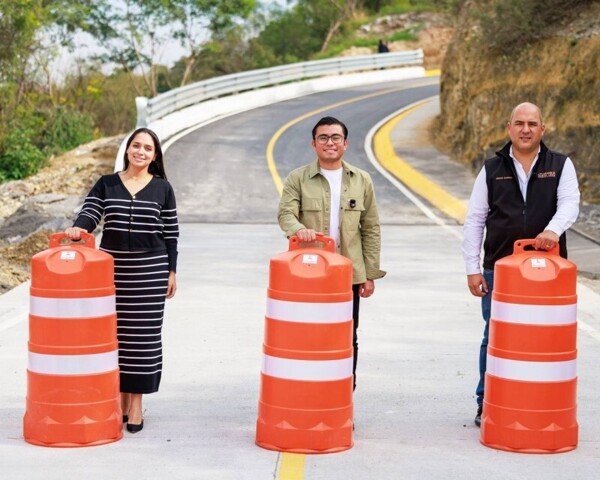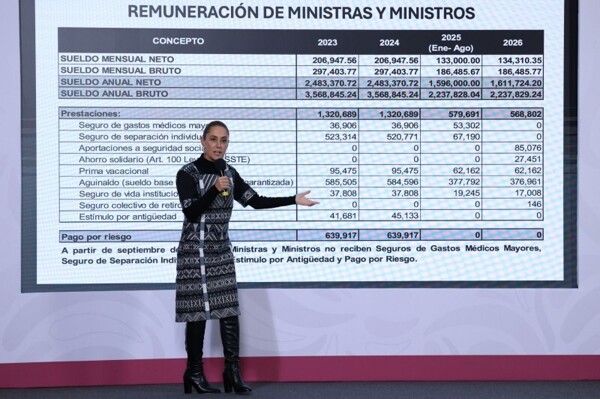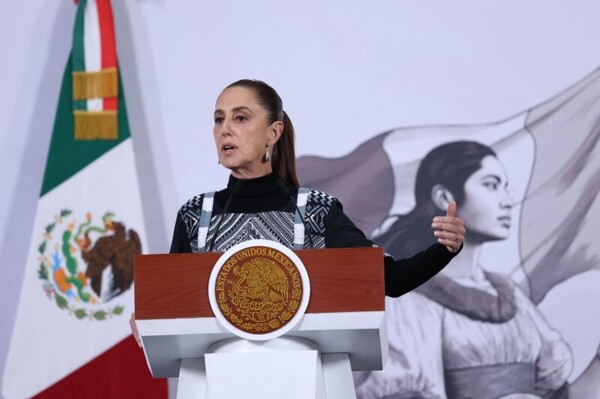
To what degree of cynicism have we arrived? However, we must not forget that all of the above is the result of a cursed heritage and a security crisis that has been emerging and growing for decades.
Drug trafficking is not a new problem, and if it is out of control today, it is also because past administrations did little or nothing to stop it, they lacked the capacity to confront it, or simply became part of the problem itself.
The reality is that the few public servants who have had the courage to confront it have had to make tough decisions, while some adopted a strategy of frontal war.
In other words, Mexico has to decide between doing what it has failed to do for decades or risking its own sovereignty as a nation.
The reality is much more complex, as a direct intervention by the United States could initially seem like a positive scenario, but the truth is that it would bring with it immeasurable collateral damage where hundreds of thousands of innocents would pay the price for an action that, of course, would not distinguish between civilians and criminals.
In this regard, time is running out for the current federal government to take and execute the necessary actions to reduce the incidence of crimes related to organized crime groups predominantly engaged in drug trafficking.
Otherwise, we will remain condemned to violence, impunity, and, in the worst-case scenario, to cede our sovereignty, so that decisions about our security are no longer made in Mexico.
Once the investigation is complete and proven, attacking, combating, and punishing these organized crime groups will be much simpler.
Now, the big problem is that it seems the federal government already knows what it must do, but it also knows that it lacks the legal resources or the human capital to establish a competent and clean regime in federal crime investigation.
Unfortunately, corruption remains the most significant obstacle and, even, it seems insurmountable already.
After all, if Mexico wants to avoid foreign intervention and regain control of its territory, the path is clear: institutions need to be cleaned up, the prosecution of justice reinforced, and corruption eradicated from the highest echelons of power, without distinction of parties, and then, at the end of all this, apply a firm hand.
This puts the government of Mexico in a strong dilemma: to combat organized crime groups within a brief period of time or face the threat of an intervention, supposedly "legally justified," by the United States.
I said it then and I say it now, the mistake of those few who have truly embraced their banner has been to try to resolve the conflict purely by force; a true fight against drug trafficking, as I know, requires a combination of various factors, the first and most fundamental being to meticulously gather all data, clues, and information that allows addressing the key points of these organized crime groups.
To achieve this, it is clear that before coordinating and training the Armed Forces it is necessary to do so, first, with the public ministry agents of the Federation.
How is it possible that it is known that certain individuals have links to drug trafficking and yet they are allowed to register as candidates for positions within the Judiciary?
In Mexico, talking about drug trafficking is to touch on a sensitive and painful topic.
All these are signs that the time to make decisions is running out. Now, this new list I mention puts us in the delicate scenario that Americans will be empowered to act aggressively and, in the worst case, invasively.
However, not all the blame lies with the current administration. Yes, it is true that both the current federal government and the state governments have people within the highest echelons of public power who are notably colluded with these organized crime groups; there are even cases that are exposed daily in the media.
I wonder: how is it possible that no one does anything when it is evident that various governors from different states of the Mexican Republic, in an evident and cynical way, allow organized crime to consume their entities?
We are not only facing palpable violence or the infiltration of this evil within politics, but now we are facing a probable threat of foreign intervention.
With President Donald Trump again at the helm of the government of the United States, various significant events have occurred, among which stands out the arrival of the United States Army to coordinate operations with the Mexican Navy or the publication of a list that classifies the main cartels in Mexico as terrorist organizations.
We require effective prosecution of justice, led by the Attorney General of the Republic and by the various criminal investigation institutions.














